Highlights
- India generates about 62 million tonnes of garbage every year
- Out of the 62 million tonnes, 45 million tonnes of garbage is untreated
- Delhi, Mumbai generate about 10 million tonnes of garbage every day
Our country is drowning in its own garbage! India generates about 62 million tonnes of garbage every year, and we need urgent waste management solutions if we are to meet the goal of a ‘Clean India’ by 2019. Just the metros alone, like Delhi, Mumbai, Chennai, Hyderabad, Bengaluru and Kolkata generate about 10 million tonnes of garbage every day. What makes it worse is that, out of the 60 million tonnes, 45 million tonnes of garbage remains untreated. To put that in perspective, that is untreated garbage piled on to 3 million trucks. Just in case you are imagining how much waste that is – If these 3 million trucks were laid end to end, they would cover half the distance between the earth and the moon. To put it in another way, that’s the distance you would cover if you made 15 trips between Mumbai and Los Angeles. If we go on at this rate, then urban India will generate 160.5 million tonnes per year by 2041.
Also Read: Waste Management: How India Is Drowning In Garbage
So where is our waste management failing? Is it enough to just create new landfills? Are conventional waste management techniques and incentives enough?
Experts differ. The more we look at countries with successful waste management programs, the more we see an fresh, out-of-the-box approach. Here’s a look at the most innovative waste management solutions across the world, that India can take a cue from.
Also Read: Delhi’s Waste Is Responsible For Killing All Aquatic Life In Yamuna River
1. Put The Plastic For Recycling And Get A Reward – Columbia’s Recycling Solution
Colombia’s municipalities produce around 28,800 tonnes of solid waste per day, with 10,000 tonnes of this waste being generated by the main cities of Bogotá, Cali, Medellín and Barranquilla. To overcome their serious waste problem, Colombia came up with the idea of ECOBOT – A recycling initiative that promotes the culture of recycling across the country. No, not by simply telling its citizens about the virtues of recycling, but by actually incentivizing and giving rewards for every recycled item. ECOBOT is basically Reverse Vending Machine which is located in shopping malls, institutions, and public spaces and encourages the process of recycling the PET bottles.
So how does this machine work? Every time you deposit a transparent plastic bottles (PET) or the caps, you receive a coupon offered by associated companies called Ecopartners. From restaurant coupons to movie tickets to shopping dollars this machine covers it all. As for all the plastic that is collected, they are just sent to recycling plants instead of landfills.
2. In Indonesia, People Can Trade Trash For Free Health Care
Malang, a city in Indonesia, generated more than 55,000 tonnes of waste every day. It was also a city where a majority of people did not have health insurance. These two issues may seem unconnected, but Dr. Gamala Albinsaid, a healthcare entrepreneur and CEO of health company Indonesia Medika saw this as a huge social opportunity. He created Garbage Clinical Insurance which let people trade garbage for medical services and medicines.
This scheme aims to tackle both poverty and waste in Indonesia, a country where more than 10% live below the poverty line. The scheme inspires low-income households to recycle their trash because by doing so they will be able to finance their health micro-insurance. The clinic takes in the trash from people and sells it to recyclers for recycling. The money collected from recyclers is then spent on giving people basic health insurance.
3. Sweden Is Showing The World How To Really Take Out The Trash
It sounds incredible, but Sweden has run out of trash and is actually asking other countries for their garbage so as it can keep its recycling plants running.
Less than one percent of Sweden’s household waste goes into the landfill dump; the rest is recycled in different ways. The 32 waste management plants in Sweden today produce heat for 810,000 Swedish households and electricity for about 250,000 private houses.
So what did Sweden do differently?
The country has adopted a recycling policy which funnels all the energy generated by burning waste into the national heating network. This provides an efficient way to heat homes through the freezing Swedish winter.
4. An Amusement Park From Trash – Uganda’s Mantra To Deal With Waste
Artist and environmentalist Ruganzu Bruno has created an amusement park for the children living in the slums of Kampala in Uganda. However, this is no ordinary amusement park, but one built entirely by waste. Bruno first collected all the waste generated by the villagers there and then, with their help, refashioned the waste to make swings and life-size board games. The goal of the artist is to make more than 100 such similar amusement parks in other parts of Uganda.
5. Semakau Landfill: Not Just A ‘Rubbish Island’
The word ‘landfill’ immediately brings to mind an image of a smelly mountain of rubbish, because that’s what it usually is. Now prepare to get dazzled by a landfill that is a bio-diversity hotspot that is home to flourishing mangroves, rich coral reefs and a capital of birds and marine life. Welcome to the Semakau Landfill, Singapore’s first offshore landfill, and now the only remaining landfill in the city-state.
So, which one of these ideas do you think India should adopt? Or given how vast and diverse our country is, should we adopt all of them? Let us know your thoughts in the comments below.


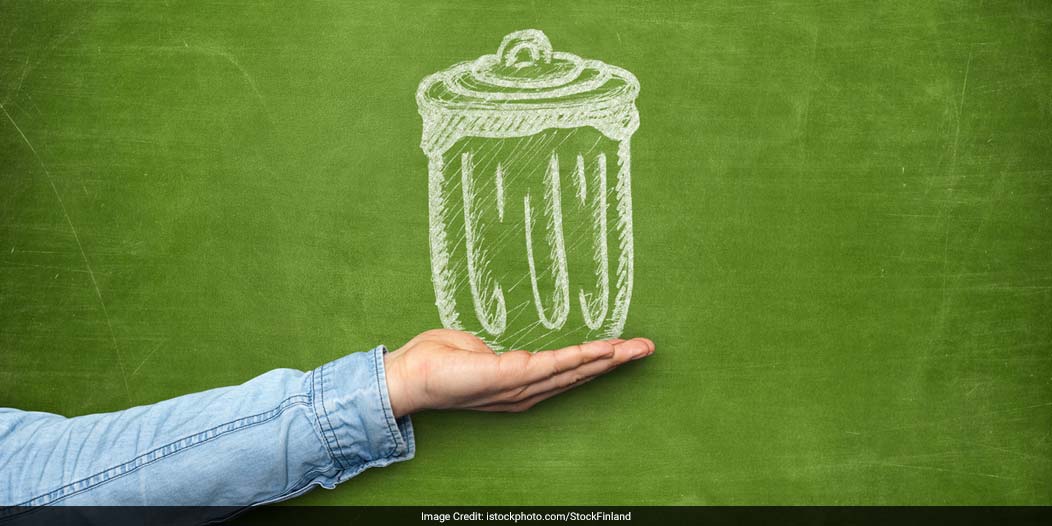
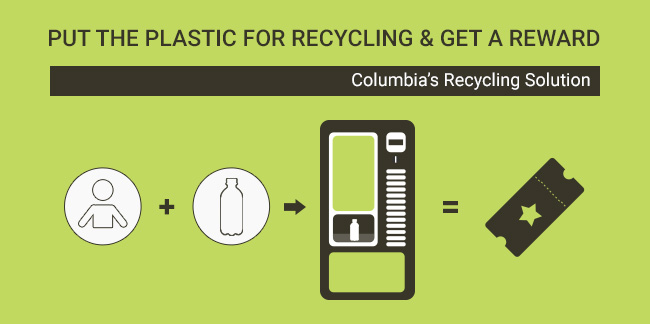
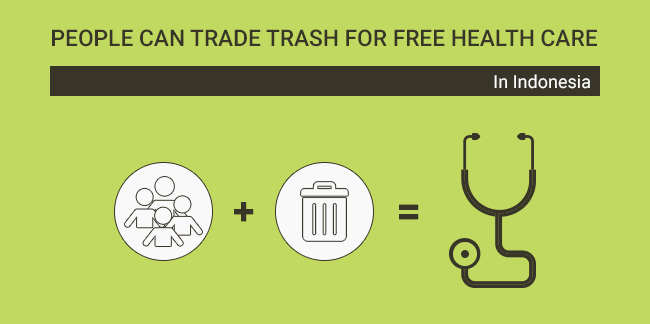
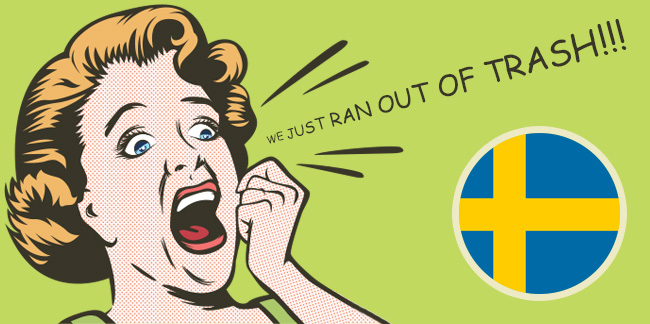
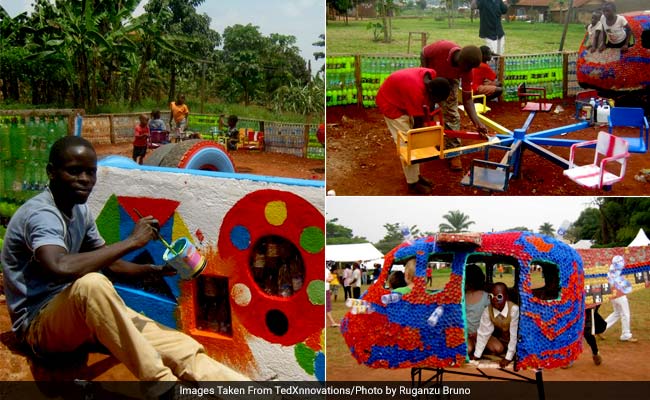
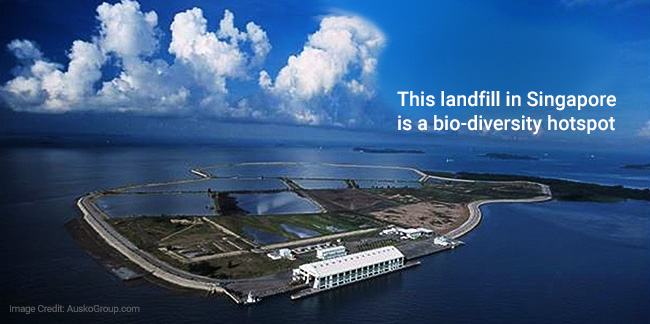





































party line
February 15, 2017 at 4:10 pm
This is nice and useful!
Sunil M
February 16, 2017 at 4:03 pm
I think, India should adopt incentive oriented formula, because Indians will only act, if they find and monetary benefit in something. Otherwise, all other methods would sound like boring lectures to their illiterate brains…
Sunil M
February 16, 2017 at 4:12 pm
But I guess, India will never become clean, because of the shoddy way roads are constructed and the shoulders on the sides of the road are left unpaved or not using grass sods to cover the soil, and the terrible culture of throwing trash everywhere, no proper underground sewage system etc.
SShetty
May 2, 2017 at 12:56 pm
The government should integrate the rag pickers in the Swach Bharat Mission. Train, equip and support them to do what they do better.
Sukhman Bajwa
October 6, 2017 at 11:19 pm
Turning waste into useful resources could also prove to be successful. I like the concept of making amusement parks out of waste products. Children playgrounds can also be made using the recycled material. The concept could also promote recycling awareness in younger generations.
Ramakrishnan
January 26, 2018 at 5:03 pm
We can adopt the systems used in Columbia and Indonesia.
Incentives will encourage people to dispose of the plastic waste in a better way.
As the healthcare costs are increasing Indonesia’s method of waste management will help in India also.
Adding to this proper waste management trainings and techniques should be explained the people Quite often.
Children who are the future generations should be made aware of the waste management practices.
It should be a continuous process.
Yash S.
May 31, 2018 at 10:15 am
For coastal cities, offshore landfills is a great win-win provided that enough island space is available or there is scope for artificial islands. Waste to Energy concept of Sweden is an amazing initiative and if clean energy can be produced, the method can be utilized to electrify rural india and tier 2,3 cities where electricity is a problem.
Decentralized way of tackling waste is a better option.
Stations and Malls can use Reverse Vending Machines, also Urban cities can use this concept or waste to energy to tackle an enormous epidemic for India.
Naefiya
December 8, 2019 at 3:36 pm
Revolutions in Sweden and Uganda seem to make sense in India.
Patrick Coppens
June 25, 2020 at 10:02 pm
pending on where the trash and types of trash come from they should all be looked at and applied so as to also reduce transportation damage and costs. ei: coastal, garbage island but inland incinerate! Application should depend on both location and types of garbage
DEEPIKA
August 4, 2020 at 11:32 pm
I REALLY APPERICIATE UR GLORIOUS EFFORTS THAT WE COULD GET MORE INFORMATION IN LESSER CONTEXT AND ALSO WILL GET IDEAS TO THINK ON IT,
Soumyadeep Ghosh
January 11, 2021 at 8:48 pm
i think by maintain recycling process as like Sweden and giving free energy to poor people who not able to paid the electricity bill….
Sreenandana
January 23, 2021 at 10:57 am
I think India really needs a proper waste management system .
Its already too late .
When will our government and authorities take an action?
John
May 12, 2021 at 8:29 pm
Thanks for all the information buddy! This will really help me on my Science CBA. By the way, in the last paragraph, you said ‘world landfill’ instead of ‘word landfill’ 🙂